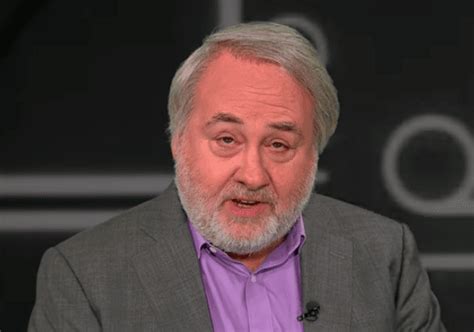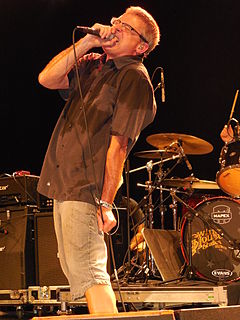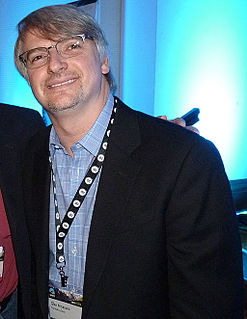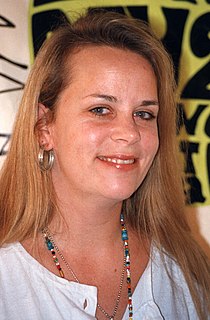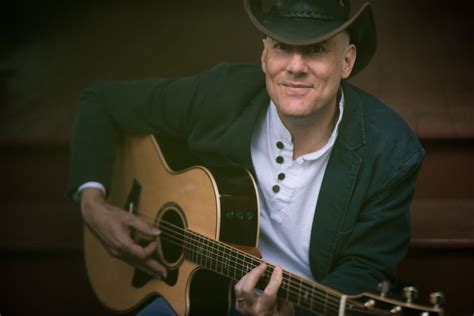Top 406 Arc Quotes & Sayings - Page 7
Explore popular Arc quotes.
Last updated on April 20, 2025.
This needs to work on that level, but it has the additional strain of it's going to be profoundly scrutinized by political junkies from the right and the left who will pick apart every little thing. We are inherently dramatizing Hillary Rodham, or Hillary Clinton, who's a very famous figure. There's a lot of biographies about her, but there's also elements that are private moments, that are dramatized with an arc, and we have to take creative license. Everything is sort of a cost-benefit.
When young Galileo, then a student at Pisa, noticed one day during divine service a chandelier swinging backwards and forwards, and convinced himself, by counting his pulse, that the duration of the oscillations was independent of the arc through which it moved, who could know that this discovery would eventually put it in our power, by means of the pendulum, to attain an accuracy in the measurement of time till then deemed impossible, and would enable the storm-tossed seaman in the most distant oceans to determine in what degree of longitude he was sailing?
At the beginning of the book [The Dissemblers], Ivy [Wilkes] has a long way to go in order to achieve self-sufficiency. Although she is very independent, even somewhat of a loner, she is very affected by other peoples' opinions. At the opening of the book, her ideas of success and achievement are largely defined by the approval of others; over the arc of the story, I think that begins to change a little.
How blind to believe the civil rights movement ever ended. The civil rights movement never ends, and it never will. It has been marching since the beginning of time. Where Martin Luther King started is where Gandhi left off, and where he started, Abe Lincoln left off, and before that Whitfield all the way back to Moses. God has not moved. We have. But it is never too late. We are not at the mercy of these events. We can alter the course of history. We can stand against the dangerous arc of this story. But we need people who are willing to speak truth.
Richard Branson is probably the most visible of the private commercial space guys, and what is venture, Virgin Galactic is about is sub orbital flight. That is, you'll see a spacecraft that looks more or less like an airplane and it will fly into space, but only spend about 15 minutes. It'll go up in a parabolic arc and then fall back down, and so the customers on that flight will only get about five minutes of weightlessness. They'll get to glimpse the horizon of the Earth, take a look at it before just before they start coming back down into the atmosphere.
I don't really distinguish between a fictional hero and a real life hero as a basis for any comparison. To me, a hero is a hero. I like making pictures about people who have a personal mission in life or at least in the life of a story who start out with certain low expectations and then over achieve our highest expectations for them. That's the kind of character arc I love dabbling in as a director, as a filmmaker.
As an actor, you don't want to know the beginning and end to your character's arc. It makes it more fun. You're not playing the end. You're playing it realistically. You don't know where this character is going to go and what's going to happen to him, which just makes it more interesting for the viewers to watch. They're going on the journey with you, as the actor and the character.
I don't believe in Gods and devils. I think it's man-made stories to try and help people understand where all this came from. They said 'Where did the world come from if there's no God', 'Where did life come from'. Just say 'I don't know'. Don't say some guy made a man and a woman. You have no business doing that, you know what I mean? And then He got mad and flooded the whole world; told Noah to build an arc. These are terrible stories.
I just did an arc with Warren Ellis - and no one else on the planet could get away with this, because I think this is like harassment? - But Warren felt like there was a depiction of Spider-Woman where it looked like her waist perhaps didn't contain any internal organs. And he suggested very quietly ... 'You should fix that, or else I will come to your house and nail your feet to the floor and set your house on fire.' ... And it totally got fixed!
To me it seems that too many young women of this time share the same creed. 'Live, laugh, love, be nothing but happy, experience everything, et cetera et cetera.' How monotonous, how useless this becomes. What about the honors of Joan of Arc, Beauvoir, Stowe, Xena, Princess Leia, or women that would truly fight for something other than just their own emotions?
It's hard for comic actors used to pulling faces just to be on screen, but Tina Fey does a good job. I liked watching her. The part, though, isn't filled in. When Baker announces that she's gotten too used to the madness of Afghanistan, that she's worried she's thinking of it as normal, the sentiment comes out of nowhere. The dramatic arc in "Whiskey Tango Foxtrot" is nonexistent. The movie evaporates in the mind like water in the Afghan desert.
I think my science career had an arc to it that peaked in, let's say 2003/2004. I was in hog heaven, working in a corporation, getting paid pretty good money and doing really exciting research. And we had just done the Cool To Be You record, and I said well, we'll put this record out, but I can't tour it because I just want to do science. That's my gig, my future.
Character is too deep to catch in a single storyline. What really moves us - what makes the great stories, and there aren't so many of them - is the inevitability of character. The destiny. All we see is the arc. We'll never penetrate the secrets of the living, let alone the dead. I've spent my whole life trying to understand people, and all I've learned is that the deeper we look, the greater the mystery. At the core, each person is unknowable. Maybe that's the soul? I have to respect that. The mystery, in fact, is what I've loved the most, in people and in stories as well.
The mind is very wild. The human experience is full of unpredictability and paradox, joys and sorrows, successes and failures. We can't escape any of these experiences in the vast terrain of our existence. It is part of what makes life grand-and it is also why our minds take us on such a crazy ride. If we can train ourselves through meditation to be more open and more accepting toward the wild arc of our experience, if we can lean into the difficulties of life and the ride of our minds, we can become more settled and relaxed amid whatever life brings us.
If you mess up the performance on stage, you do it again the next night. You're like alright, you let yourself off the hook, and you've got to go back in there. Whereas, with a film, I would go home and be like, "Well, I've ruined the arc of the character forever. That scene is never going to work. I know because I can never shoot it again." So, it's all miserable, but in different ways.
Look, Gail." Roark got up, reached out, tore a thick branch off a tree, held it in both hands, one fist closed at each end; then, his wrists and knuckles tensed against the resistance, he bent the branch slowly into an arc. "Now I can make what I want of it: a bow, a spear, a cane, a railing. That's the meaning of life." "Your strength?" "Your work." He tossed the branch aside. "The material the earth offers you and what you make of it . . .
For throughout history, you can read the stories of women who - against all the odds - got being a woman right, but ended up being compromised, unhappy, hobbled or ruined, because all around them, society was still wrong. Show a girl a pioneering hero - Sylvia Plath, Dorothy Parker, Frida Kahlo, Cleopatra, Boudicca, Joan of Arc - and you also, more often than not, show a girl a woman who was eventually crushed.
Out of a human population on earth of four and a half billion, perhaps twenty people can write a book in a year. Some people lift cars, too. Some people enter week-long sled-dog races, go over Niagara Falls in a barrel, fly planes through the Arc de Triomphe. Some people feel no pain in childbirth. Some people eat cars. There is no call to take human extremes as norms.
I think the important thing about staying creative and staying sharp and original is not to look back too much, and to kind of look to where your vision is going now. But I have felt over the years a definite progression or arc from feeling guilty about what I had done with the first one, because certainly there was all that fundamentalist guilt that came pouring back in. Feeling like I'd done something horrible, "I'm a despicable person and I'm perverse," and all these things, to a sense of the power and the necessity, in a sense, of horror films and dealing with dark material.
Ah, Marilyn, Hollywood's Joan of Arc, our Ultimate Sacrificial Lamb. Well, let me tell you, she was mean, terribly mean. The meanest woman I have ever known in this town. I am appalled by this Marilyn Monroe cult. Perhaps it's getting to be an act of courage to say the truth about her. Well, let me be courageous. I have never met anyone as utterly mean as Marilyn Monroe. Nor as utterly fabulous on the screen, and that includes Garbo.
There are very few horror shows, where you have a long running arc. Most horror shows play as a sort of an anthology. Buffy - a terrific show - had the-demon-of-the-week. Twilight Zone - X Files - these things had an anthology approach. Our show is a long running drama with the same creatures every week.
Each of us is our own story, but none of us is only our own story. The arc of my own personal story is inexplicably and intrinsically linked to the story of my parents and the story of my neighbor and the story of the kid that I met one time. All of us are linked in ways that we don't always see. We are never simply ourselves.
I first heard the term "meta-novel" at a writer's conference in Tulsa, Oklahoma. The idea is that even though each book in a series stands alone, when read collectively they form one big ongoing novel about the main character. Each book represents its own arc: in book one of the series we meet the character and establish a meta-goal that will carry him through further books, in book two that meta-goal is tested, in book three - you get the picture.
If we generally like the way things are now, we must also ask whether our current situation is really so different from the open ages of radio, film, or the telephone. Might it not also have seemed in those times that the orgy of limitless entrepreneurism would never end? The point is that we are near the high end of a pendulum arc that, so far, has aways begun to swing in the opposite direction -toward greater integration and centralization- with a force that can seem inexorable.
Tonight, the moon came out, it was nearly full.
Way down here on earth, I could feel it's pull.
The weight of gravity or just the lure of life,
Made me want to leave my only home tonight.
I'm just wondering how we know where we belong
Is it in the arc of the moon, leaving shadows on the lawn
In the path of fireflies and a single bird at dawn
Singing in between here and gone
With any television series - and it's something that is taken for granted with movies because you have the whole arc within two hours - you establish who the character is and it's a two-dimensional version, or if you're lucky, a two and a half-dimensional character. Once you establish that, you can move forward and break all the rules. Once the audience has accepted who the person is, then you can do the exact opposite. What makes it funny and interesting is doing the opposite.
Change isn't optional, and creation isn't something that happened a long time ago and then ended. It's ongoing, and we are invited to be a part of it. The question for us is 'what will we create in this new day?' How will we make it count? How will we nourish the things that matter, and stand in the way of injustice in the small ways that add up to the arc of history? You are invited to participate in the creation of this day.
I believe that the Iraqis have an opportunity now, without Saddam Hussein there, to build the first multiconfessional Arab democracy in the Middle East. And that will make for a different kind of Middle East. And these things take time. History has a long arc, not a short one. And there are going to be ups and downs, and it is going to take patience by the United States and by Iraq's neighbors to help the Iraqis to do that. But if they succeed, it'll transform the Middle East, and that's worth doing.
As an actor, you don't want to know the beginning and end to your character's arc. It makes it more fun. You're not playing the end. You're playing it realistically. You don't know where this character is going to go and what's going to happen to him, which just makes it more interesting for the viewers to watch.
When our days become dreary with low hovering clouds of despair, and when our nights become darker than a thousand midnights, let us remember that there is a creative force in this universe, working to pull down the gigantic mountains of evil, a power that is able to make a way out of no way and transform dark yesterdays into bright tomorrows. Let us realize the arc of the moral universe is long but it bends toward justice.
... [a] girl one day flared out and told the principal "the only mission opening before a girl in his school was to marry one of those candidates [for the ministry]." He said he didn't know but it was. And when at last that same girl announced her desire and intention to go to college it was received with about the same incredulity and dismay as if a brass button on one of those candidate's coats had propounded a new method for squaring the circle or trisecting the arc.
When in doubt, the rule of threes is a rule that plays well with all of storytelling. When describing a thing? No more than three details. A character's arc? Three beats. A story? Three acts. An act? Three sequences. A plot point culminating in a mystery of a twist? At least three mentions throughout the tale. This is an old rule, and a good one. It's not universal - but it's a good place to start.
I try to just be open to what the next experience is and how it makes me feel, just reading a project, or trying to get involved with a project, or thinking about a project, and what particular emotional flavor that brings. To me, it's never really about planning the next thing, or the career arc. It's about investigating how I feel, from project to project, and finding things that I haven't explored and what that would be like.
As an attorney, I assure you the law isn't a line engraved in marble, immovable and unchangeable through the centuries. Rather the law is like a string, fixed at both ends but with a great deal of play in it very loose, the line of the law so you can stretch it this way or that, rearrange the arc of it so you are nearly always short of blatant theft or cold-blooded murder safely on the right side. That's a daunting thing to realize but true.
I am committed now to one thing: lyric sequences. I want the intensity of lyric, but the scope and arc of narrative. so, I think I'll just write sequences for the foreseeable (the Beloved sequence doesn't have a 'plot' so I can just keep adding poems to it, it's like a giant bag I can just put beloved lyrics into - I think there are about 300 of them i've published by now).
I don't particularly like the idea that there's an arc to the story and that therefore in this scene you have to convey this bit of information or emotion. I like more the feeling that, of course, there is a shape to the story, but that each scene should feel right, should be true at that moment, and that gradually you accumulate these moments of truth until you get enough of them together that it becomes a story that's interesting.
In the end, people don't view their life as merely the average of all its moments-which, after all, is mostly nothing much plus some sleep. For human beings, life is meaningful because it is a story. A story has a sense of a whole, and its arc is determined by the significant moments, the ones where something happens. Measurements of people's minute-by-minute levels of pleasure and pain miss this fundamental aspect of human existence. A seemingly happy life maybe empty. A seemingly difficult life may be devoted to a great cause. We have purposes larger than ourselves.
I find myself skeptical of music that forces you to have a certain experience, emotional reaction, or specific constructive arc of experience. But performers should still take care of that, to a certain extent - how does it add up? What you want from performance, because we're all in a room together, is that somehow we've gotten somewhere at the end, together. You could call that a sense of narrative, but it's not so obvious how that happens. One way it happens is by everyone caring about it happening.
I would argue, for perspective's sake, that the arc of a really literary work is precisely that it both intensely reflects, and simultaneously transcends the conditions of its making. I would say that is the difference between literature and other kinds of writing. That is what the literary is - it ultimately doesn't matter what his circumstances were. And the thing that you were just saying about being sympathetic to Brontë and the fact that she could only write what she wrote when she wrote it... that's true. But look at that novel, which means so much to so many people.
We need merely understand that the evolutionary process is neither random nor determined but creative. It follows the general pattern of all creativity. While there is no way of fully understanding the origin moment of the universe we can appreciate the direction of evolution in its larger arc of development as moving from lesser to great complexity in structure and from lesser to greater modes of consciousness. We can also understand the governing principles of evolution in terms of its three movements toward differentiation, inner spontaneity, and comprehensive bonding.
Besides being asked why I write about young characters, I am often asked how I write about young characters. How do I throw myself across the chasm of full adulthood to relive that period? I guess I don’t, really. Age is not so much a feature of your character, as the spot where you stand for a pretty fleeting time on the arc of your life.
The process could be likened to relaxing on a riverbank and watching a fish leap out of the water, sparkle for a moment in the sunlight, then dive back in a graceful arc. There is no need to engage in a mental dialogue about the merits and demerits of the fish, emotionally react to the fish, or jump into the water to try to catch the fish. Once the fish is out of sight, it should also be out of mind.










